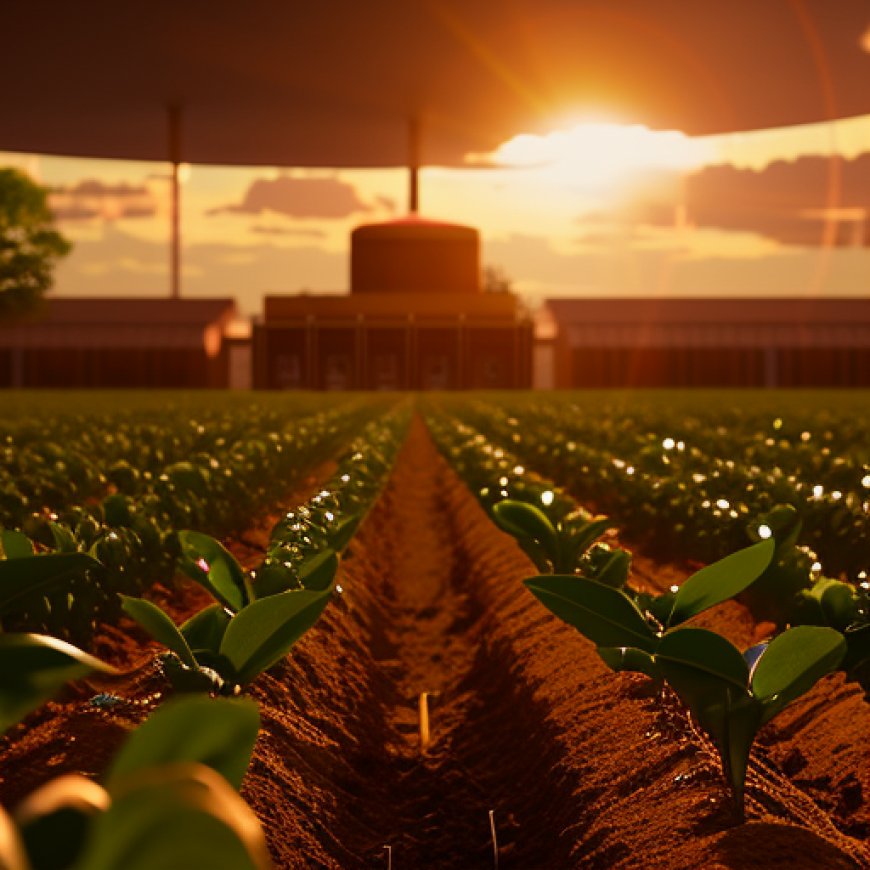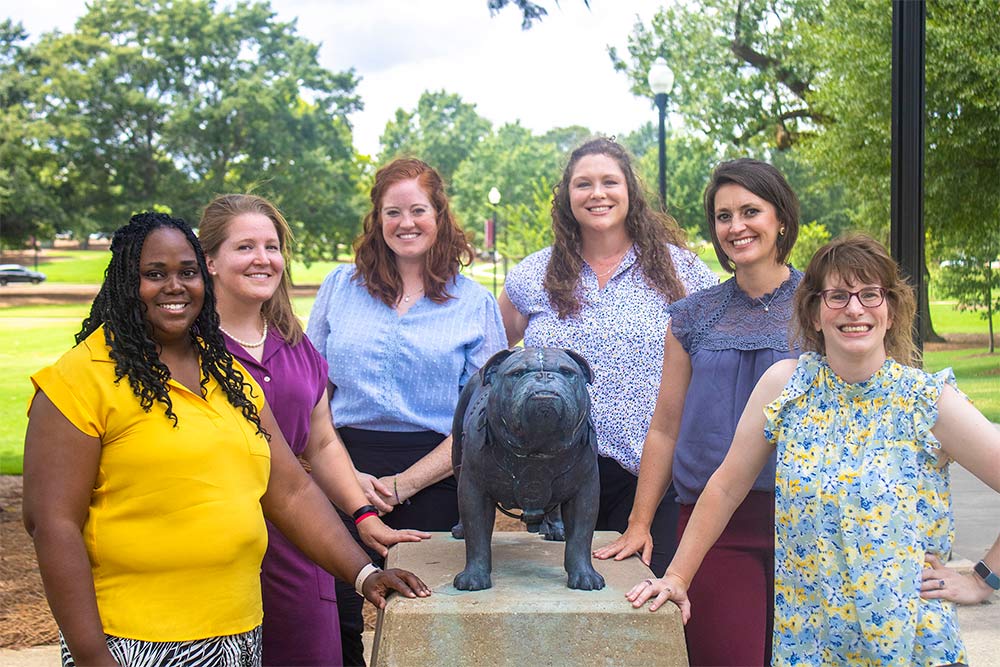MSU grant project brings agricultural literacy to Mississippi classrooms
MSU grant project brings agricultural literacy to Mississippi classrooms Mississippi State University


Contact: Meg Henderson

Introduction
Mississippi State University (MSU) has received a $485,000 grant from the U.S. Department of Agriculture’s National Institute of Food and Agriculture (NIFA) to support the Agricultural Science Professional Development program. The program aims to educate K-12 teachers about the importance of agriculture and career possibilities in the field.
Agricultural Science Professional Development (ACRE 2.0)
The four-year project, known as ACRE 2.0, focuses on integrating poultry and food science into existing curriculum, introducing students to career pathways in these fields, and providing support and mentorship to teachers. The grant offers financial assistance to participating teachers for attending training sessions and provides materials for implementing ACRE 2.0-based lessons throughout the school year.
Training and Support
Stephanie Lemley, an associate professor in MSU’s College of Education, is the principal investigator and project director. She, along with other project leaders, is training three cohorts of K-12 teachers. The first cohort consists of 28 teachers from 14 school districts across the state. The program begins with a professional development session at MSU, where teachers learn about ACRE 2.0 and prepare to implement it in their classrooms. Throughout the academic year, teachers attend follow-up training sessions and assessments.
Integrating Agricultural Literacy
Stephanie Lemley and Carley Morrison, an associate professor in the College of Agriculture and Life Sciences, aim to help teachers introduce agricultural literacy content to students through their existing subject content. The goal is to integrate literacy skills such as reading, writing, speaking, and listening into an agricultural context. For example, a science teacher could teach concepts of solid, liquid, and gas matter using food-based examples.
Food Science Curriculum
Courtney Crist and Shecoya White, faculty in the Department of Food Science, Nutrition and Health Promotion, have developed the food science curriculum. This curriculum is based on STEM principles (science, technology, engineering, and math) and can be adapted by teachers to suit different subjects and grade levels.
Poultry Science Curriculum
Kelley Wamsley and Jessica Wells, faculty in MSU’s Department of Poultry Science, have developed the poultry science curriculum. The aim is to educate students about the career opportunities in the poultry industry, as well as dispel any misconceptions about poultry production.
Building Relationships and Empowering Students
The program aims to build relationships between the university and K-12 schools to collectively support literacy and introduce students to careers in agriculture. The team is excited about expanding the program throughout the school year and hopes that participating teachers will share their knowledge with colleagues and inspire students to explore careers in the field.
Recruitment
The team is currently recruiting teachers to join the second and third cohorts of the program. Teachers interested in joining can contact Stephanie Lemley for more information.
Conclusion
The Agricultural Science Professional Development program at Mississippi State University is dedicated to promoting agricultural literacy and inspiring students to pursue careers in agriculture. Through the integration of poultry and food science into existing curriculum, teachers are equipped with the tools to educate students about the importance of agriculture and its impact on sustainable development goals.
Contact Information
To request information about joining a cohort, contact Stephanie Lemley at sbennett@colled.msstate.edu. For more about the College of Agriculture and Life Sciences, visit www.cals.msstate.edu; the College of Education at www.educ.msstate.edu.
Mississippi State University is taking care of what matters. Learn more at www.msstate.edu.
Participating School Districts and Teachers
- Calhoun School District
- Anamaria Moore
- Amanda Taylor
- Cleveland School District
- Tammie Marlow
- Coffeeville School District
- Anthony Mason
- Enterprise School District
- Cindy Martin
- Mary Lucus
- Forest Municipal School District
- Brent Foreman
- Kemper County
- Ashton Clark
- Neshoba Central School District
- Kreissa Reed
- Noxubee County Schools
- Lasonja Randle Ferguson
- Pontotoc City School District
- Kim Brumley
- Renea Hinton
- Laverne Richardson
- Rachel Sneed
- Charlotte Whitworth
- Emily Clements
-
SDGs, Targets, and Indicators in the Article
1. Which SDGs are addressed or connected to the issues highlighted in the article?
- SDG 2: Zero Hunger
- SDG 4: Quality Education
- SDG 8: Decent Work and Economic Growth
- SDG 12: Responsible Consumption and Production
2. What specific targets under those SDGs can be identified based on the article’s content?
- SDG 2.4: By 2030, ensure sustainable food production systems and implement resilient agricultural practices that increase productivity and production, that help maintain ecosystems, that strengthen capacity for adaptation to climate change, extreme weather, drought, flooding, and other disasters, and that progressively improve land and soil quality.
- SDG 4.7: By 2030, ensure that all learners acquire the knowledge and skills needed to promote sustainable development, including, among others, through education for sustainable development and sustainable lifestyles, human rights, gender equality, promotion of a culture of peace and non-violence, global citizenship and appreciation of cultural diversity and of culture’s contribution to sustainable development.
- SDG 8.6: By 2020, substantially reduce the proportion of youth not in employment, education or training.
- SDG 12.8: By 2030, ensure that people everywhere have the relevant information and awareness for sustainable development and lifestyles in harmony with nature.
3. Are there any indicators mentioned or implied in the article that can be used to measure progress towards the identified targets?
- Number of K-12 teachers trained in integrating poultry and food science into existing curriculum
- Number of participating teachers from different school districts
- Number of training sessions and assessments attended by teachers
- Number of lesson plans created aligning with ACRE 2.0 content
- Number of students exposed to agricultural literacy content
- Number of teachers sharing what they’ve learned with their colleagues
Table: SDGs, Targets, and Indicators
SDGs Targets Indicators SDG 2: Zero Hunger SDG 2.4: By 2030, ensure sustainable food production systems and implement resilient agricultural practices that increase productivity and production, that help maintain ecosystems, that strengthen capacity for adaptation to climate change, extreme weather, drought, flooding, and other disasters, and that progressively improve land and soil quality. – Number of K-12 teachers trained in integrating poultry and food science into existing curriculum
– Number of lesson plans created aligning with ACRE 2.0 contentSDG 4: Quality Education SDG 4.7: By 2030, ensure that all learners acquire the knowledge and skills needed to promote sustainable development, including, among others, through education for sustainable development and sustainable lifestyles, human rights, gender equality, promotion of a culture of peace and non-violence, global citizenship and appreciation of cultural diversity and of culture’s contribution to sustainable development. – Number of K-12 teachers trained in integrating poultry and food science into existing curriculum
– Number of students exposed to agricultural literacy contentSDG 8: Decent Work and Economic Growth SDG 8.6: By 2020, substantially reduce the proportion of youth not in employment, education or training. – Number of K-12 teachers trained in integrating poultry and food science into existing curriculum SDG 12: Responsible Consumption and Production SDG 12.8: By 2030, ensure that people everywhere have the relevant information and awareness for sustainable development and lifestyles in harmony with nature. – Number of teachers sharing what they’ve learned with their colleagues Behold! This splendid article springs forth from the wellspring of knowledge, shaped by a wondrous proprietary AI technology that delved into a vast ocean of data, illuminating the path towards the Sustainable Development Goals. Remember that all rights are reserved by SDG Investors LLC, empowering us to champion progress together.
Source: msstate.edu

Join us, as fellow seekers of change, on a transformative journey at https://sdgtalks.ai/welcome, where you can become a member and actively contribute to shaping a brighter future.







